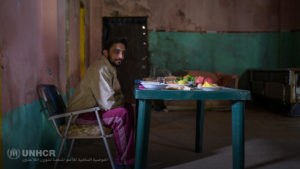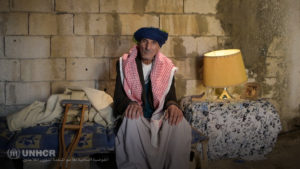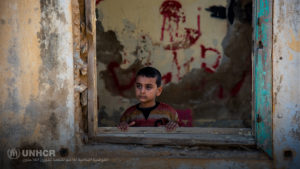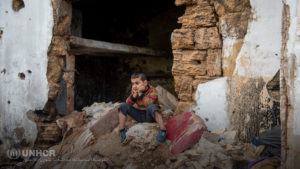With The Start Of Ramadan, UNHCR Calls For Support For Refugees And Displaced People As Millions Are Exposed To Deprivation Amid The COVID-19 Crisis
Millions of people who fled wars and violence are among those around the world preparing to observe the holy month of Ramadan, under the exceptional circumstances of the COVID-19 crisis. Refugees and internally displaced people are frequently among the most marginalized and vulnerable members of society and are particularly at risk during this pandemic. Together with the local communities that host them, they often have limited access to water, sanitation and health systems, and with scarce socio-economic resources to survive. Many of those observing Ramadan will be doing so without the certainty of food on the table at the end of the day to break their fast.
“This year, we are entering the holy month of Ramadan at a time of great global suffering. But it is in the essence of Ramadan that many can find solace and hope. Everyone is vulnerable in the face of this pandemic – but refugees, the internally displaced and impoverished host communities are among the most exposed. At a time when our collective humanity is being tested, they are in more need than ever of life-saving help and support,” said Filippo Grandi, the UN High Commissioner for Refugees.
Ramadan is a month of reflection, compassion and giving, a time for families and communities to come together. This year, as the world fights a pandemic which is forcing millions into confinement and social distancing, long-standing Ramadan traditions will have to adapt to measures designed to protect public health.
Millions of refugees and IDPs observing Ramadan this year are already facing a difficult reality. Most refugees live a hand-to-mouth existence, reliant on casual labour opportunities that have now vanished, as restrictions of movement and other public health measures trigger a global economic downturn. Many have been displaced for years and are already heavily indebted are forced to skip meals, or to resort to child labour or forced marriages.
UNHCR, the UN Refugee Agency, is working with governments and humanitarian partners to ensure that refugees and internally displaced people are included in national COVID-19 response plans, and is expanding cash and other forms of assistance .But urgent and additional financial support is needed now to help ensure that people can survive these challenging times.
Coinciding with the holy month of Ramadan, UNHCR launched today a global fundraising campaign ‘Every Gift Counts’ to help raise funds for the most vulnerable refugees and IDPs. Contributions are urgently required to prevent more people from slipping deeper into poverty in light of the COVID-19 crisis.
“Compassion, generosity and kindness – the true values of Zakat giving – are more fundamental today than ever before,” added Grandi.
The global Ramadan campaign aims to raise additional funds to provide vital support such as shelter, food, clean water and cash assistance to the most vulnerable refugees and IDPs, including orphans, female-headed households, the elderly in Syria, Yemen, Iraq, Malian refugees in Mauritania and among Rohingya refugees in Bangladesh.
This campaign will provide supplementary funding to UNHCR, allowing it to continue its regular programming as well as provide much needed support to meet new mounting needs caused by the COVID-19 pandemic.










